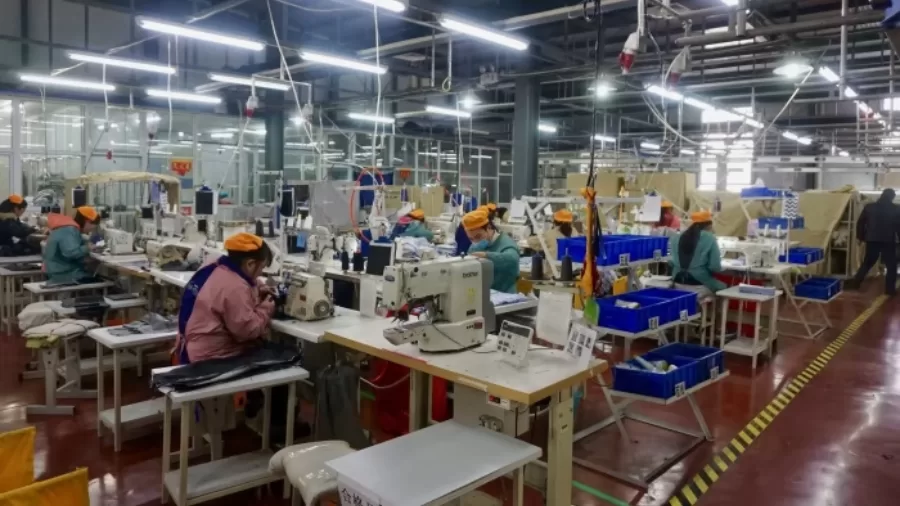Brands Social
Chinese Factories Take Trade War to TikTok: A New Front in US-China Tensions

- TikTok now offers an alternate path for Chinese manufacturers to sell their items directly to consumers in the United States at astonishingly low prices; however, these transactions are still subject to US duties.
- This e-commerce paradigm is anticipated to result in an increase in the number of counterfeit products, increased environmental damage, and stricter e-commerce regulation.
The trade war between the US and China escalated when the Trump administration slapped a 145% tariff on Chinese goods, and in retaliation, China imposed a 125% penalty on US imports. The disruption of global supply chains has led businesses to think about alternative ways of handling the ever-increasing economic pressures. A peculiar action from the Chinese side is facilitating their sales directly to US consumers through TikTok, a popular social media website which redirects them from traditional retail markups and takes them back to the circuit of US tariffs. The move is a reflection of a new chapter in the trade war, underlining digital platforms as the new battlegrounds of economic competitiveness.
Origin of the Trade War
The US-China trade war, which began during Donald Trump’s first term as president, involves tariffs imposed by both countries. US sanctions are intended to lower the economic imbalance with China while also maintaining American jobs; nevertheless, China regards them as protectionist and anti-global trade measures. The present tariff rates, imposed in April 2025, are among the highest in recent decades, with the US levying 145% on Chinese imports and China levying 125% on US exports. To offset the burden of tariffs, several Chinese factories have shifted to Southeast Asia, particularly Vietnam and Thailand. However, these Asian countries have not been spared by new US tariffs, which have placed a 46% tariff on Vietnam and a 24% tariff on Thailand, limiting their relocation strategy.
TikTok Chinese Factories Sales
Chinese factories have recently adopted TikTok as a means of reaching out to American consumers. One such business strategy is producers claiming to be OEMs for luxury brands. Viral TikTok videos have increased the appeal of factories that sell low-cost products. For example, LunaSourcingChina, a TikTok influencer, claimed to source yoga pants from the same Yiwu, China, factories as Lululemon, implying a cost of only $5 to $6 per pair compared to $100 at retail. Another account, Wang Sen, in a video later deleted on TikTok, exhibited products mimicking Birkin bags, advising viewers, “Why don’t you just contact us and buy from us?” “You will not believe the prices we will offer you.”
LunaSourcingChina alleged on TikTok that Lululemon‘s items are made in factories in Yiwu, China. Lululemon promptly issued a statement, noting that they do not interact with those specific producers and alerting customers about counterfeit operations. As a result, linked platforms have grown in popularity: DHgate rose to second place, and Taobao reached number seven on the US Apple App Store under these conditions.
Expert Concerns and Counterfeiting Risks
Industry observers question the veracity of direct sales. According to Hao Dong, a senior lecturer at the University of Southampton, factories under contract with major brands are bound by non-disclosure agreements and do not publicly solicit orders, implying that such manufacturers are unlikely to be authentic and may produce high-quality imitations or counterfeits. The opaque structure of luxury goods supply chains, in which parts can be preassembled in China and finished elsewhere, impedes verification.
Dr Cheng Mingming, a digital marketing professor at Curtin University, claims that manufacturers are stressing tariffs’ negative impact on customers, but the strategy’s long-term success is uncertain. For consumers, the promise of lower prices is appealing, but the risk of purchasing counterfeit items is high. The proliferation of counterfeit items endangers the intellectual property and reputation of brands like Lululemon.
Challenges and Environmental Impact
Despite numerous challenges facing this model of selling directly to consumers, the United States is likely to put an end to its de minimis exemption, according to which packages worth below US$ 800 are allowed duty-free. The change will add to the cost of direct imports from Chinese sources, hurting the credibility of this initiative. Imports from manufacturers based in China, travelling individual shipments work against the considerations of carbon footprint and are liable to throw up environmental issues. Similar practices by companies like Shein and Temu are meeting criticism, rendering the layering of this situation a nightmare.
Broader Implications for Global Trade
An inclination toward social media sales would shape global trade. Successful experimentation might inspire others to undertake similar tropes and mount a challenge to existing trade agreements and tariff structures. If worked properly, whether in real goods or half-faked imitations, it could justify even stricter e-commerce norms lest its exploitation might spoil the experience for good. Having a strong effect on international business, this underscores the increasing role digital platforms are exercising. Given a situation where physical boundaries are becoming less and less meaningful, governments cannot avoid such dynamics of the digital world while formulating their trade policies, thus balancing the economic concerns with issues of validity and sustainability.

















































